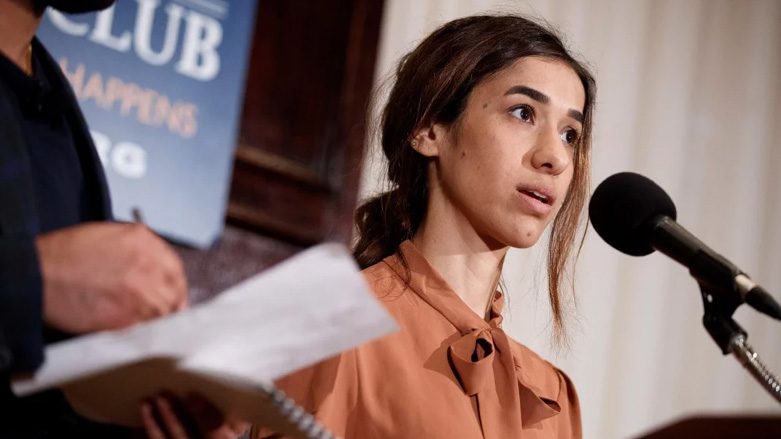Nadia Murad: Wildfires could destroy evidence from Yezidi mass graves of ISIS genocide

ERBIL (Kurdistan 24) – Nobel Peace Prize winner Nadia Murad on Tuesday expressed her concerns about the recent wildfires in Iraq’s Nineveh and how the flames may destroy mass graves where evidence of the so-called Islamic State’s genocide against the Yezidi (Ezidi) minority is being gathered.
According to Murad, the fired across farmlands in Iraq, especially in Nineveh governorate, have burned some of the 79 mass graves that contain the remains of Ezidis who suffered genocide at the hands of the terror group in Sinjar (Shingal).
Over 30,730 acres of farmland have been burned in less than one month in a recent wave of fire incidents across 11 provinces in Iraq, according to data provided by the Iraqi Ministry of Agriculture.
“There have been wildfires, including in my hometown Kojo, and some of the mass graves were burned. We don’t know how many,” Murad told Reuters on Tuesday.
“All these innocent people killed, and for the past five years we’ve failed to bring justice for them,” she added. “Now that the mass graves are burned, we fear that the evidence will disappear.”
Related Article: Iraq to begin DNA tests to identify remains of Yezidi victims in mass graves
The religious minority suffered heavily at the hands of the terror group following its emergence in Iraq in 2014, including mass executions. The occupation of the town of Shingal led to the displacement of hundreds of thousands of Ezidis.
On March 15, the Federal Government of Iraq, the Kurdistan Regional Government (KRG), and the United Nations Investigative Team for the Accountability of Islamic State crimes (UNITAD) marked the beginning of national efforts to unearth the first mass graves of Ezidi victims.
On May 27, UNITAD announced it had completed the unearthing of 12 of the 79 mass graves found in coordination with “local community and survivor advocate groups.”
Editing by Karzan Sulaivany
